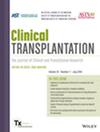Generic Versus Brand-Name Immunosuppression Following Heart Transplant: An Analysis of the UNOS Database
Abstract
Background
Immunosuppressant medications, such as tacrolimus and mycophenolate mofetil (MMF), are crucial for preventing graft rejection after heart transplantation (HTx). Generic formulations have become available, offering potential cost savings, but concerns exist regarding their clinical bioequivalence compared to brand-name formulations. Current guidelines suggest no increased risk with generic use, but research remains limited. Therefore, this study aims to explore whether the type of immunosuppressant formulation at hospital discharge influences post-transplant outcomes.
Methods
This retrospective analysis utilized data from the United Network for Organ Sharing (UNOS) registry, including HTx recipients from January 2015 to March 2022. Patients were grouped based on their discharge immunosuppressant regimen: dual generic, dual brand-name, or a mix of both tacrolimus and MMF. Demographic and clinical variables were collected. The primary outcome was all-cause mortality and graft failure, assessed using Kaplan-Meier analysis and Cox proportional hazards regression. Multivariable Cox regression was adjusted for recipient and donor characteristics. Statistical significance was set at p < 0.05. This approach allows for a thorough examination of the relationships between immunosuppressant formulations and outcomes.
Results
The study included 16 529 HTx recipients. The majority (52.0%) were discharged on a dual generic regimen. At 1-year post-transplant, significant differences were observed in treatment for rejection, graft failure, and all-cause mortality among the groups. The dual generic group demonstrated the lowest rates of graft failure (13.6%) and all-cause mortality (13.1%) at 5 years. However, after adjusting for demographic and clinical characteristics using multivariable Cox regression, no significant differences in graft failure or mortality were observed among the immunosuppressant regimens.
Conclusion
Despite initial differences in unadjusted outcomes, adjusted analyses did not demonstrate a significant difference in graft failure or mortality between brand-name and generic immunosuppressant regimens. These findings suggest that clinicians can confidently prescribe generic immunosuppressants without compromising patient outcomes, potentially leading to substantial healthcare savings.

 求助内容:
求助内容: 应助结果提醒方式:
应助结果提醒方式:


